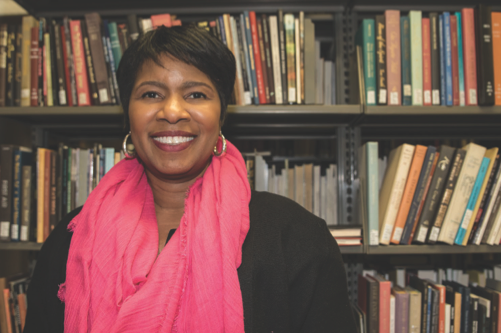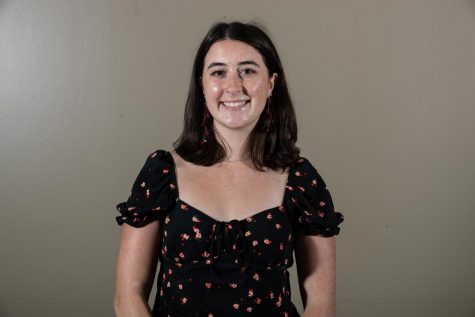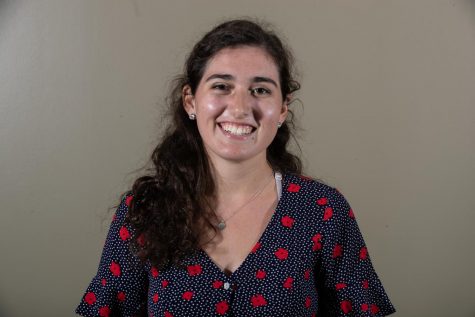Black Catholic Education: UI prof tells the story of an often-forgotten history
UI Associate Professor Katrina Sanders is in the process of writing The Rise and Fall of Black Catholic Education in a Changing South, 1886-1976. As a historian of American education and race relations, she delves into a history previously not told.

UI Associate Professor Katrina Sanders poses for a portrait in the Main Library on March 13. Sanders is working on the book The Rise and Fall of Black Catholic Education in a Changing South.
March 25, 2019
University of Iowa Associate Professor Katrina Sanders is conducting research for her upcoming book, The Rise and Fall of Black Catholic Education in a Changing South, 1886-1976, with the goal of addressing a history that is often unacknowledged.
“I don’t have a memory of life without the Catholic Church being there … when you know your history exists, but you’re not reading about it and you’re a historian, it bugs you,” she said.
Sanders, a historian of American education, said her research interests lie in the history of African American education, race relations, and Catholic and religious-based education. The particular research she is conducting focuses on the South because, during her time of focus, the Catholic Church was especially concerned with the area.
“What I am doing in this book, basically, is providing a history … not the history but a history of black Catholic education,” she said.
UI Professor Richard Brent Turner, who works in African American religious history and has known Sanders for many years said the book is important on many levels. It “provides us with a lot of new knowledge about the rich culture of African Americans” and will have a “great impact on the field of religious studies,” he said.
RELATED: UI religious-studies professor assists in History Channel docu-series ‘Jesus: His Life’
The research for her book was initially intended to be for her dissertation in graduate school, Sanders said, but the amount of research was so vast it needed to be collected over an extended period of time. But she continued to follow her interest and has been conducting research since the ’90s, she said.
As a historian, Sanders said, one has a unique ability in selecting what to research. As a black Catholic, she said, it became important to her to research the history that was personal to her and her upbringing.
When we talk about the history of American education, we have to realize that it’s not just one history and education doesn’t mean one thing … As I gather data, it inspires me to continue searching for more data.
Her book delves into the role of segregation in black Catholic education and what it meant for the faith. She said some researchers argue that Catholics didn’t push for integrated schools to avoid attention to their already unpopular faith practice.
“Some scholars argue that if you’re a persecuted group yourself, or a group that’s on the fringe, then maybe one of the last things you want to do is align yourself with another dominated group,” she said. “Especially a group that is so despised in the United States.”
Sanders said that integration of schools was somewhat of a “big elephant in the room” the Catholic Church didn’t want to touch. There are even some researchers who argue the Catholic Church is a racist institution and that is why they were hesitant to integrate blacks and whites, she said.
UI Professor Kristy Nabhan-Warren, a colleague of Sanders, said her own research focuses on a similar topic, Latino groups and Catholicism. Her research, like Sanders’, studies Catholic institutions’ involvement with minority groups, she said.
“There hasn’t been a lot on black Catholic education … there’s been some work done on you know, racism in the Catholic Church,” Nabhan-Warren said. “But what Katrina seems to be doing her intervention … is … looking at that whole spectrum that I don’t necessarily other scholars doing.”
Sanders’ book, she said, is giving context to the Catholic Church and the relationship to black people.
“When we talk about the history of American education, we have to realize that it’s not just one history and education doesn’t mean one thing …” Sanders said. “As I gather data, it inspires me to continue searching for more data.”















